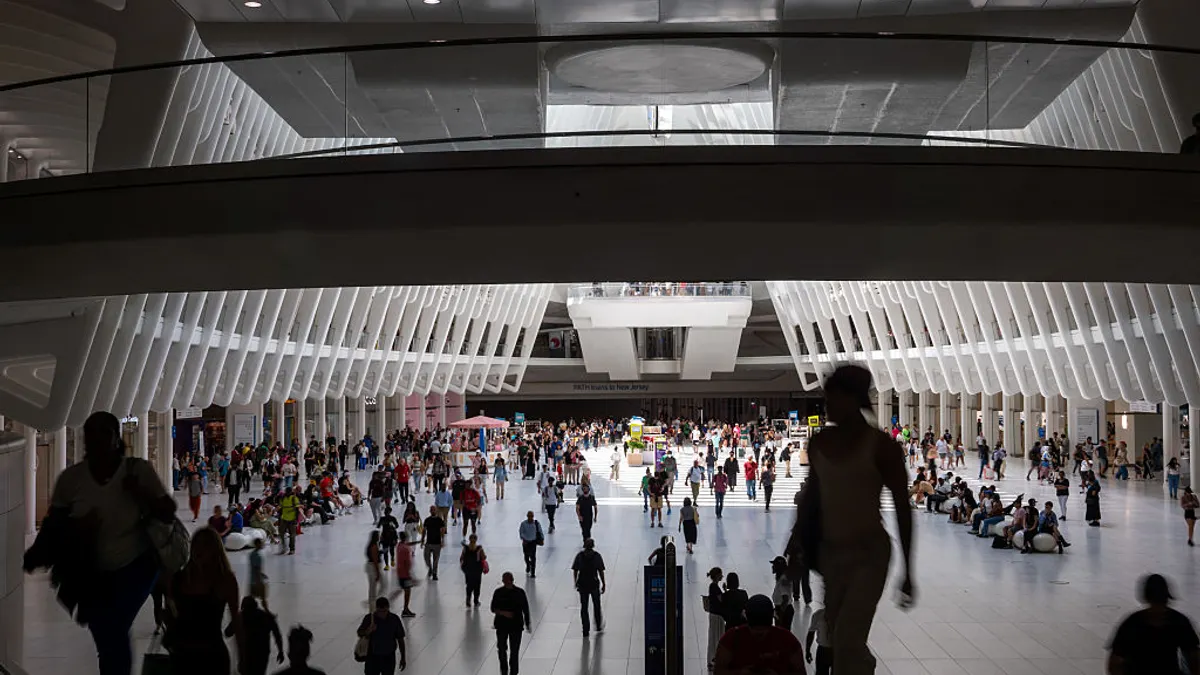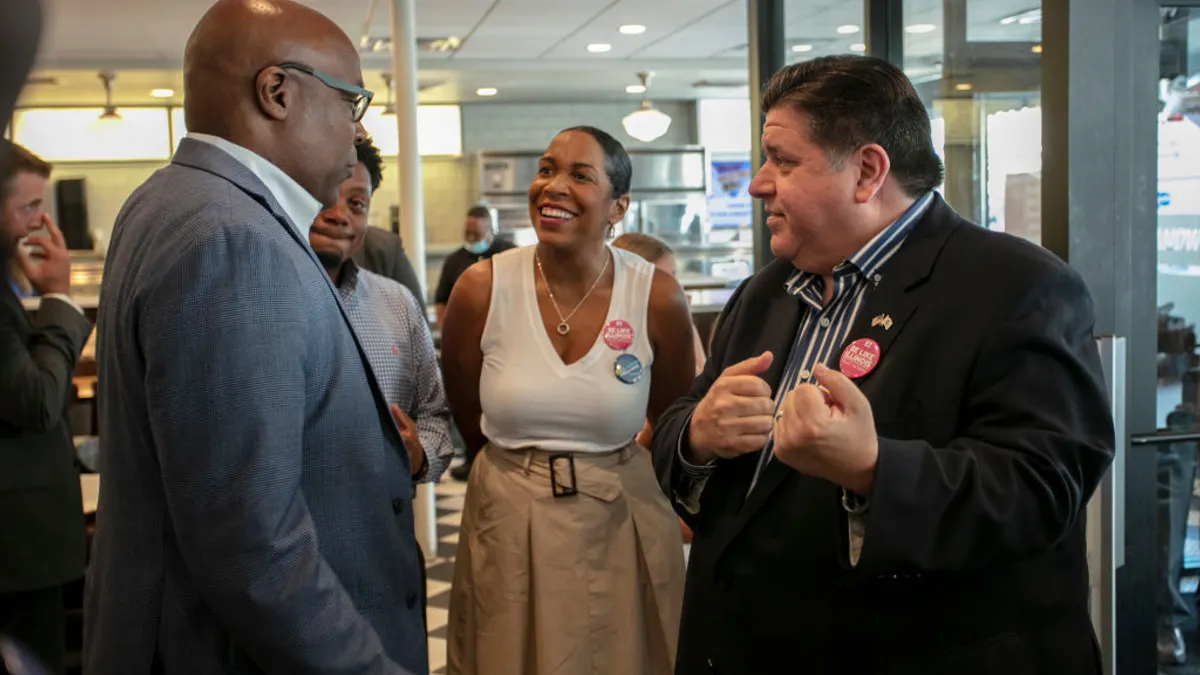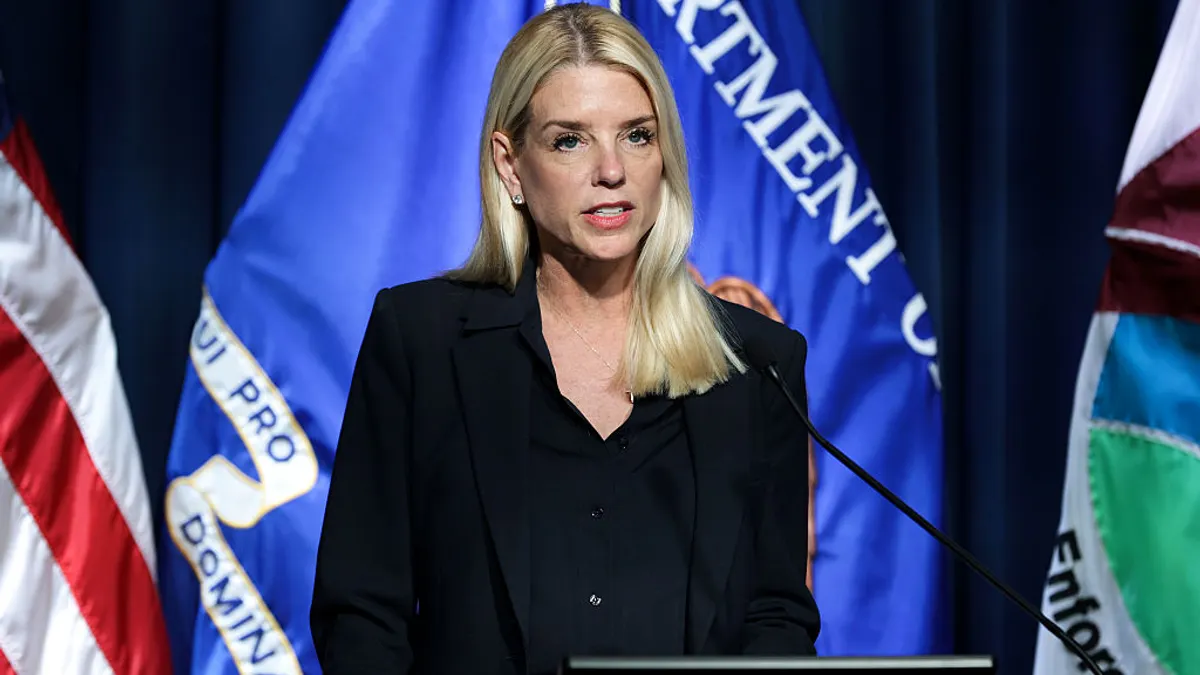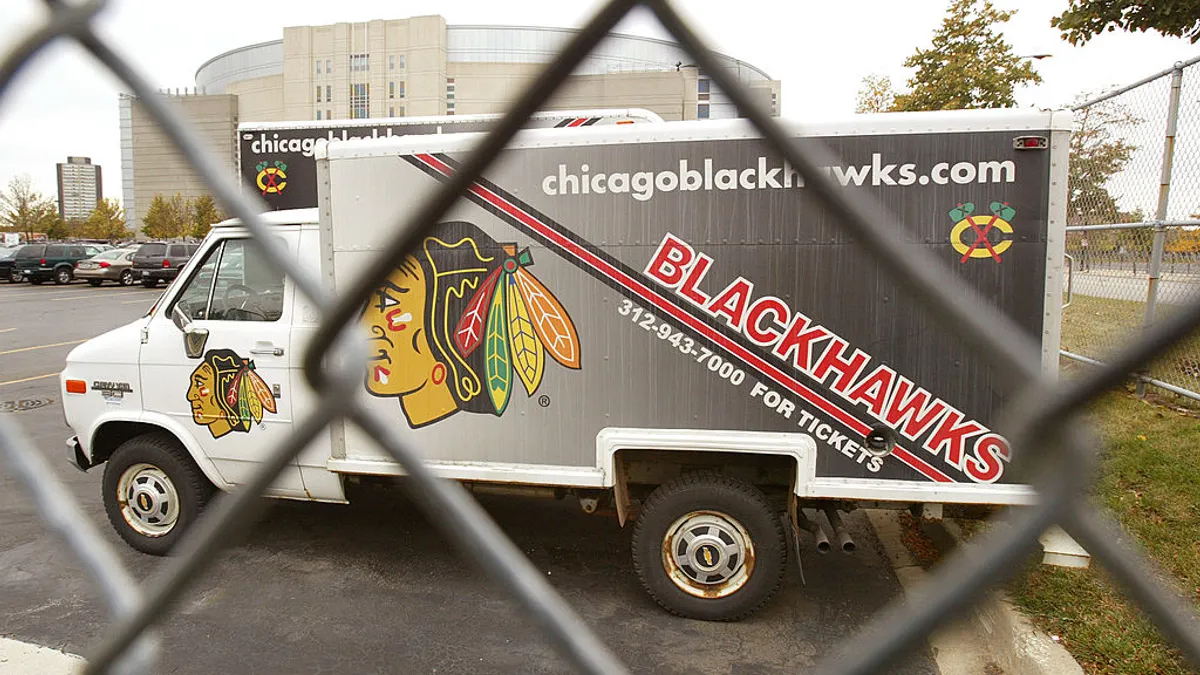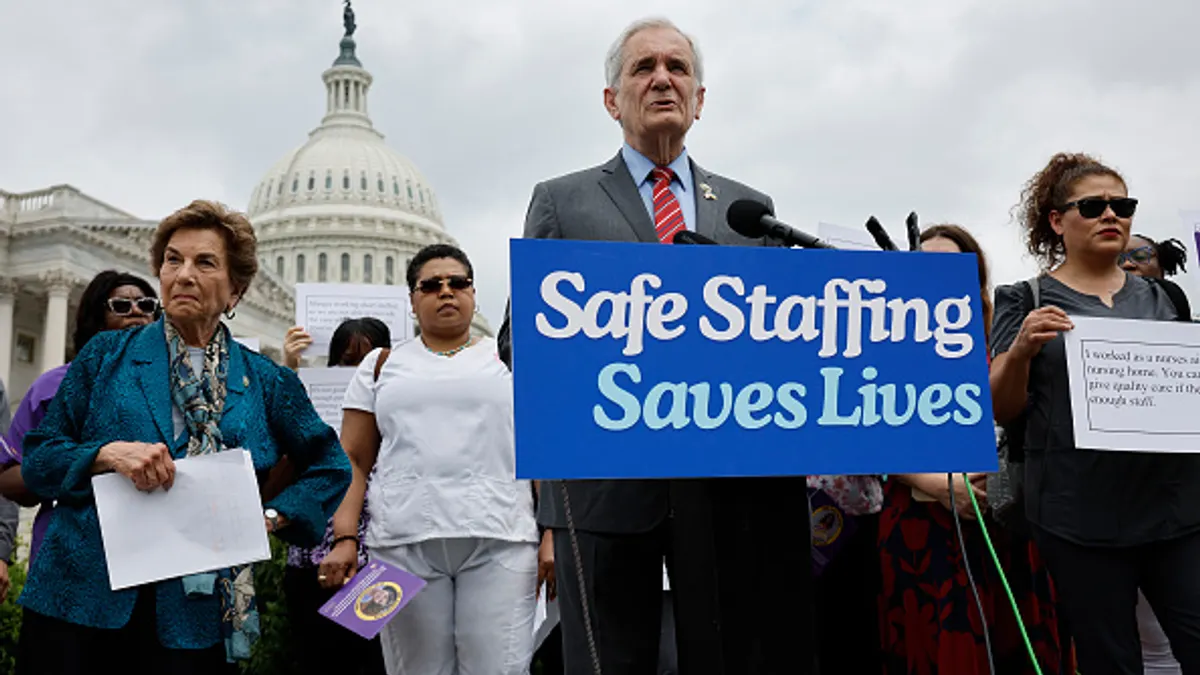A workplace that supports diversity, equity and inclusion requires buy-in at the uppermost levels of an organization, experts have previously told HR Dive. Research has also shown that a sense of belonging for all employees is crucial during times of crisis, and diversifying top leadership can help increase belonging in the workplace.
As a national focus on racial justice continues amid the COVID-19 pandemic, TIAA President and CEO Roger Ferguson sets an example for diversity, inclusion and belonging every day, Corie Pauling, the organization's chief inclusion and diversity officer and head of corporate social responsibility, told HR Dive.
"It is an absolute truth that the message and the example set at the very top provides the runway for the effectiveness of inclusion and diversity strategies," Pauling said.
Setting the tone
Ferguson is one of the Black male leaders who comprise just 1% of CEOs in the Fortune 500. He leads an executive leadership team with diverse backgrounds. In May, the financial services organization was named among the top 10 of the nation's companies excelling in diversity and inclusion strategies.
In response to nationwide protests following the killing of George Floyd, Pauling said that organizations could either respond briefly and "hope that people move on," or recognize, "like we did, that this is more than a moment." In a June 1 LinkedIn post, Ferguson provided a personal perspective.
"As someone who started his education at a segregated elementary school, I've experienced first-hand the progress we've made," he said. "Yet the pace has been slower than we'd like, and the long line of tragedies like those we have recently experienced — as well as the disproportionate impact the COVID-19 crisis has had on minority communities — underscore that there's still much work to do."
Ferguson acknowledged both the disproportionate effects of the pandemic, and recent tragedies experienced, including the killing of Floyd, Ahmaud Arbery and Breonna Taylor. In a letter to TIAA clients, Ferguson announced a new program called Be the Change created to "uplift our workforce and our communities through dialogue, education and engagement," he said.
The origins of Be the Change
The video captured of the killing of Floyd by former Minneapolis police officer Derek Chauvin sparked a conversation and a desire to understand and address "a legacy of racism," Pauling said. The dialogue, "I think, in many respects, is unprecedented," she added.
"I think what made George Floyd's death different is literally watching someone be suffocated," she explained. "Watching someone be killed by a police officer, and the lack of empathy and humanity in those 8 minutes and 46 seconds was just shocking."
The program is for everyone in the organization to "really reflect on how we can all do our part to be the change," she said.
Be the Change is based on four pillars — facilitating change through understanding, dialogue, leadership and action, Pauling said. Out of this initiative, the organization launched 10 programmatic and communication-based efforts in June, she said.
"We did not want this launch to just be words on a page and a social media post," Pauling explained. "We actually wanted to be able to shed a light on what we know is going on in the community, what our internal opportunities are, and actually put effort and resources toward it."
One of TIAA's Be the Change virtual initiatives called Race Against Racism took place June 25-28. It was inspired by Race Amity Day, a day dedicated to bridging racial divides and breaking down misperceptions and prejudices. More than 1,000 TIAA associates teamed up with a colleague virtually and committed to walk, run or bike ride in a race in remembrance of Floyd, Taylor and Arbery, Pauling said.
During their journey, participants were asked to think about a personal commitment to help bring forth a positive change, she said. An online portal was established for participants to upload "selfies when they cross the finish line and also their personal commitment statements," Pauling said.
Participants were also encouraged to purchase and wear Be the Change T-shirts with proceeds benefiting The Innocence Project, a nonprofit committed to criminal justice reform and the exoneration of those wrongly convicted.
The event was a team effort and involved associates outside of the inclusion and diversity space, Pauling said. The response indicated that there's a high-level of engagement in regard to building community and the desire to show the leadership needed "to get to a better space as a result of these tragedies," she said.
Spreading action to the community
In the wake of national protests following Floyd's killing, consumers and employees are seeking enhanced corporate social responsibility (CSR) with a focus on social justice — termed corporate social justice, according to a June 15 opinion piece in Harvard Business Review.
In addition to its Race Against Racism effort, TIAA partnered with the nonprofit EveryoneOn for the Be Active for Access program to help bridge the equity gap created by the digital divide. It aims to provide internet access and affordable internet service to low-income families in need, TIAA said in a statement.
The Summer of Service program offers associates virtual opportunities to engage in their communities and support those adversely impacted by COVID-19, the organization said.
"It has been so redeeming to see the full diversity of our workforce standing up and saying, ‘we are going to lead in this space; we are going to help people pivot and learn and grow; and we're going to become better from this,'" Pauling said.











